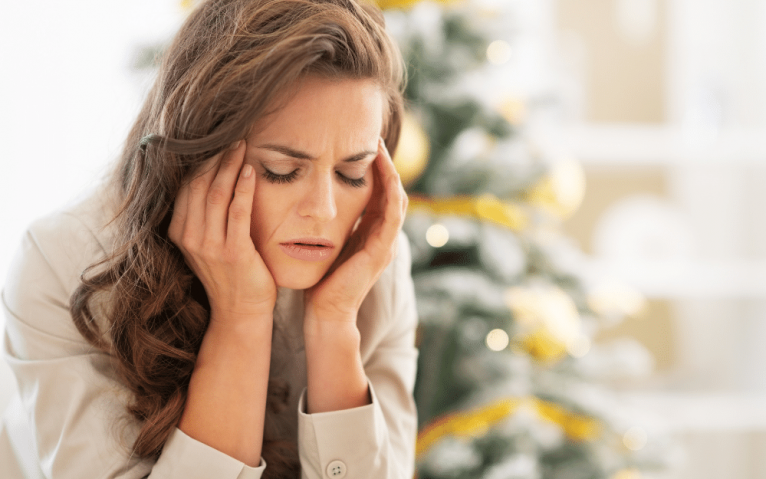The holidays are a cheerful and lovely time of the year to spend time with friends and family. But, for those in early addiction recovery, the holidays come loaded with urges, cravings, and triggers that can make the festivities less than enjoyable. As you’re preparing for holiday challenges in early recovery, we hope these tips give you the guidance you need to remain sober.
Create Your Holiday Relapse Prevention Plan
With parties or not, the holidays come with a unique set of triggers that make a recovery difficult. Having a thought-out relapse prevention plan is critical to avoid relapsing. By having a plan, you can say yes to holiday parties, family gatherings, and more. The key here is to anticipate everything that could happen. Your basics should include:
- Make sure you avoid any vulnerable situations.
- Recognize the emotional complexities of the season.
- Have your support system close and ready to help.
- Remember to take care of yourself.
- Create new traditions with your friends and family.
- Try to volunteer and seek opportunities to express your gratitude.
Overall, the holidays are very emotional. The simple idea of going holiday shopping can be stressful on its own. For those in early recovery, you’ve probably haven’t seen some family members and friends in awhile. Not to mention, there will be triggers almost everywhere you go.
However, just because these emotions can be too much to handle, they are not excuses to rationalize a slip. The disease of addiction doesn’t make exceptions for the holidays.
Crafting your holiday relapse prevention plan will help you anticipate your every move, so you can stay away from the substances that once caused you irreparable harm.
Use Our Holiday and Recovery Worksheet
It might seem silly at first, but writing down our triggers, responses, and plans in advance can help us be better prepared for difficult situations. Take some time this holiday season to print out our holiday and recovery worksheet to help you create your plan to stay on your recovery path this season.
Watching Out for Holiday Triggers in Recovery
The holidays are prime-time for urges, cravings, and triggers. This is an excellent time to go back to your relapse prevention toolkit and work on strengthening your urge-busting skills. Try to voice out loud or write down these triggers. Is it emotions? Is it the abundance of alcohol everywhere? Maybe it is feelings of loneliness during the holidays?
Don’t hesitate to search deep into what could be a trigger this holiday season. The better prepared you are to face these triggers, the fewer chances you’ll have of relapsing. But, you also have to be aware of external triggers that might affect you one way or another, for example:
- Seasonal Affective Disorder (SAD): A common mental health condition during the winter month and causes feelings of anxiety, stress, and depression.
- Others Holiday Stress: Around 69% of people are stressed during the holidays due to “lack of time” or “lack of money.”
- Binge Drinking: Even though some people are not struggling with substance abuse, they’re more likely to engage in binge drinking sessions during the holiday season.
Coping with Holiday Stress
Everyone deals with holiday stress, but for people in recovery trying to stay sober, the holiday season places unprecedented challenges.
It’s paramount to practice everything you learned in addiction treatment and use this moment to test your knowledge. Remember that you have control over your addiction now, and you have the tools to stay sober. Here are some tips for coping with holiday stress:
- Make sure to take care of yourself by engaging in self-care practices that help calm your stress, such as yoga, meditation, or exercise.
- Try to spend time outdoors and in the sun to prevent Seasonal Affective Disorder.
- Spend time with support groups and talk about anything that makes you feel uncomfortable during the holidays.
- Reach out to your sponsor or visit your treatment center to create your holiday relapse prevention plan.
- Practice gratitude by writing down a list of everything you’re grateful for today.
- Prioritize attending group support meetings and aftercare recovery sessions.
- Considering enlisting in a relapse prevention program during the holidays.
- Make time to volunteer or help in your community.
- Make time to practice a hobby that helps you relax, like dancing, listening to music, baking, or cooking.
A Word from Lighthouse Recovery Institute
We know that the holidays can be a stressful time for you. Spending time with family members and friends can make you feel uncomfortable, stressed, and almost on-the-edge. But, we believe in you. You have everything you need to avoid holiday relapse. Your friends and family at Lighthouse Recovery Institute will be here to help you navigate these stressful days. If you feel that you don’t have the strength to navigate the holidays by yourself, you don’t have to. Contact us and learn more about our aftercare recovery program to access the support you need this time of the year.









